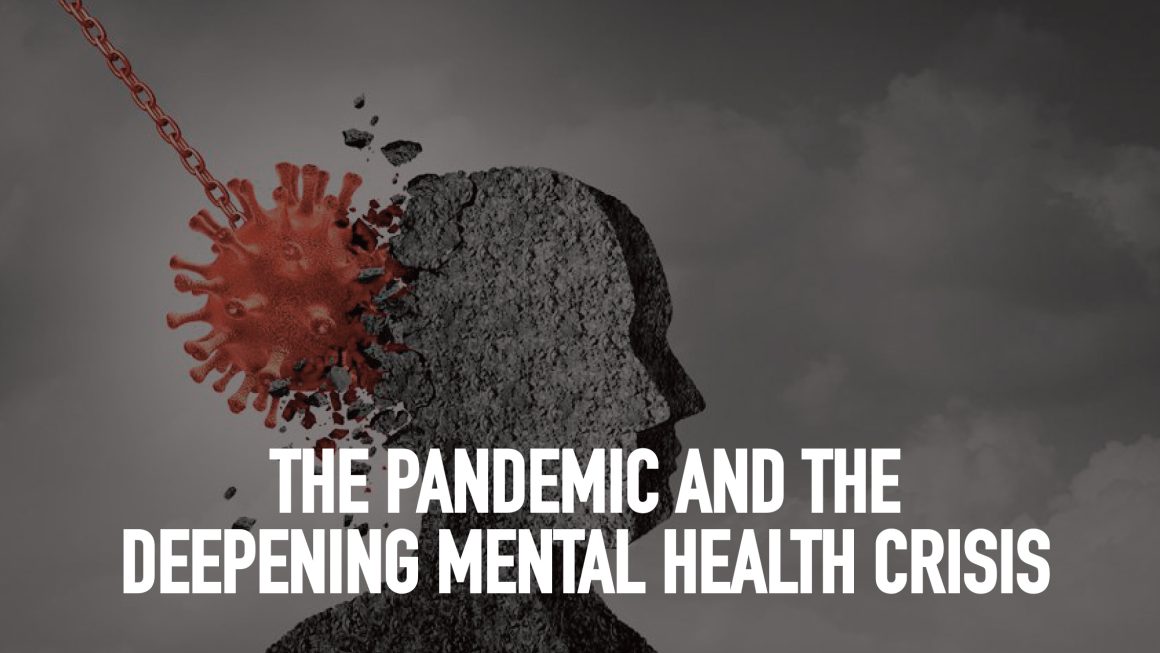By Adam Dudley
Before any of us had heard of Covid-19, one in 10 people globally lived with a mental health disorder. Ireland, North and South, has consistently registered levels higher than the average (around 15%) and some of the highest prevalence in the world for anxiety disorders and psychiatric disorders like Schizophrenia. Since Covid struck, studies paint a picture of mental health issues spreading through communities much like the virus itself. Unlike the virus, however, it is not social contact that allows it to move through the population, but social isolation.
Increasing loneliness and despair
The Psychological Society of Ireland concludes that increases in loneliness, nervousness and reduction in life satisfaction for the general population mirror increases in depression, anxiety and PTSD symptoms for those most affected. Health workers, in particular, are experiencing PTSD symptoms, while teenagers are struggling most with depression and anxiety. More than half of adult mental health sufferers first report symptoms as teenagers.
Feelings of loneliness and anxiety have doubled over the last two years for those aged 18-34. One study of final year students in Kerry found that 86% felt Covid had worsened their mental health – 37% significantly so. Ninety percent reported extreme worry regarding the uncertainty around the Leaving Cert. That particular saga, leaving around 60,000 students in limbo for months, exposes the reality that governments are gambling with our lives and are willing to jeopardize our mental health to return to ‘business as usual’.
Economic catastrophe
Job losses or reduced working hours due to Covid amounted to the equivalent of 225 million jobs lost globally in 2020. 8.7% of young workers (15-24) lost their jobs – as retail, tourism and food production industries collapsed. One study from the US showed that more than half of low-paid workers have struggled to pay bills, with 32% having problems paying their mortgage or rent, and almost 20% have been unable to find the money for necessary medical care.
More than a third reported borrowing money from friends and family and using food banks. The accumulated effects of this economic crisis are not difficult to predict – social isolation, disruption in work and education, loss of income, the burden of debt and housing uncertainty. We are at the foothills of a generalized mental health pandemic.
Wealth inequality – unprecedented & obscene
As Nero played his fiddle while Rome burned – so the rich and powerful have been able to revel in bumper profits as the crisis has ravaged working-class communities. A recent OXFAM report into income inequality in the context of Covid found that nine Irish billionaires have increased their wealth by €3.28 billion since the start of the pandemic. That’s more than three times the annual budget for mental health services in Ireland. Globally, as $3.7 trillion has been lost by workers – a remarkably similar amount has been gained by the world’s billionaires ($3.9 trillion).
All that wealth, idle in the bank accounts of the super-rich, could be used to protect and create jobs, invest in crippled health services and transform the lives of the majority of the world’s population struggling to cope with a system incapable of providing a future free from poverty, disease and climate change.
The capitalist system puts the rights of the rich to become richer above the rights of the majority to a better future. In place of isolation, workers, young people and the oppressed need to come together to fight for a world where its wealth is publicly owned, democratically controlled and planned to meet the needs of all. This can lay the foundation for a society based on human solidarity that seeks to tackle the urgent problems of the mental health crisis, poverty and the destruction of our ecosystem.












